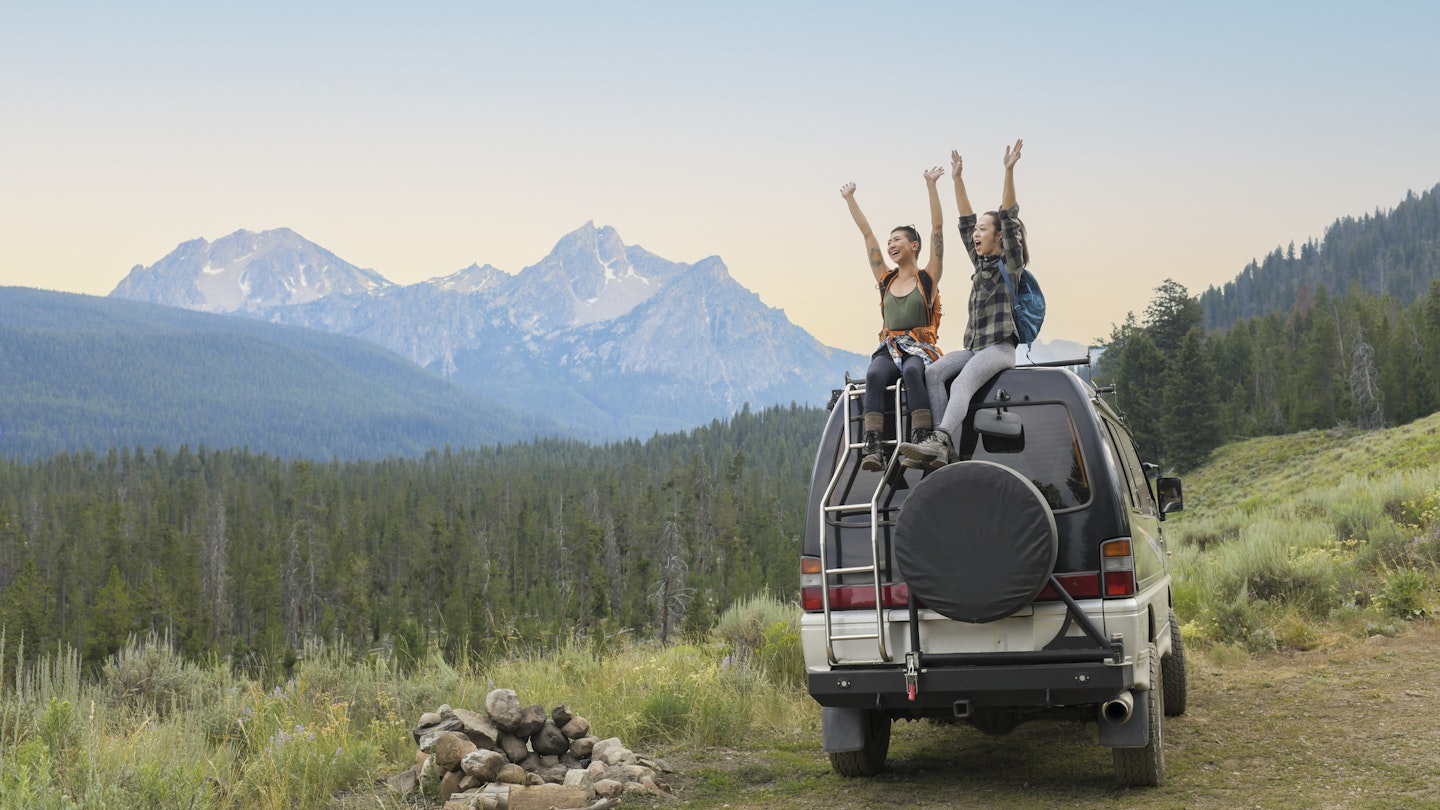The United States is supersized, encompassing sprawling big cities and epic natural splendors. Moreover, its citizens exhibit a unique friendly demeanor and a strong sense of national pride.
While political rhetoric may often appear divisive, such views typically do not infiltrate small talk or daily interactions. In a college town in the South, for instance, pickup trucks often sit alongside eco-friendly cars while their owners gather at a coffee shop to grumble about the weather.
1. Pick a Region – Avoid Overextending Your Trip
The USA can feel overwhelming, with 50 states, 63 national parks, and 4 million miles of highways. Therefore, it’s wise to focus on a specific region for a more enjoyable trip.
The continental USA is divided into roughly nine areas: New England, the Mid-Atlantic, the South, the Midwest, the Southwest, and the West (which includes the Rocky Mountains, the Pacific Northwest, and California).
Additionally, Alaska and Hawaii offer unique experiences as well. However, Texas stands out with its own diverse offerings that resist regional classification.
2. How Long Should You Stay in the US?
Exploring major metropolitan areas like New York City, Chicago, Los Angeles, or Washington, DC could easily fill a week, especially with enticing day trips to nearby parks and beaches. A week may suffice for smaller states, but if you really want to dive into a region, consider staying for at least 10 days.
This duration allows you to visit multiple cities or explore several national parks, particularly in California or the Southwest region.
3. Avoid Overplanning Your Itinerary
While it may be tempting to plan multiple stops in a single day, it’s important to account for potential delays. Two-lane roads are prevalent, and factors like scenic viewpoints and wildlife may slow your journey.
Therefore, be open to extending your stay at destinations, allowing room for spontaneity in your travel plans.

4. Reservations May Be Required for Outdoor Activities
Due to high visitation numbers, several national parks now impose reservation requirements for popular hiking trails. Notably, reservations are necessary for hiking iconic trails like Half Dome in Yosemite and Angels Landing in Zion.
Additionally, certain national parks have entry requirements or reservations needed for popular activities. Always check specific park websites for the latest details ahead of your trip.
5. Museums Might Also Require Reservations
Not just national parks, but major metropolitan museums can be quite crowded, necessitating timed entry secured through reservations. Small specialty museums in tourist-heavy areas often sell out daily.
6. Mondays Can Be Quiet
Many restaurants and museums tend to be closed on Mondays, and some may also keep their doors shut on Tuesdays. Therefore, if you plan to dine or explore smaller towns, consider scheduling your visit from Thursday through Sunday.
7. Dress in Layers for Outdoor Adventures
When hiking, it’s crucial to dress in layers, even during summer months. Nights in high-elevation areas can be cooler, so a lightweight pullover can enhance comfort. Most hikers utilize three layers: a base layer, an insulating layer, and an outer waterproof shell.
8. Embrace Friendly Greetings and Punctuality
Greetings vary from handshakes to hugs, but most face-to-face interactions include a friendly hello. Americans appreciate punctuality, as tardiness may be viewed as inconsiderate.
9. Public Restroom Access Can Be Limited
Finding public restrooms can be surprisingly challenging. In urban areas, visitor centers, libraries, malls, and city parks usually provide the best options. In less populated areas, gas stations or fast-food outlets often have restrooms available.
10. Small Talk is Common – Avoid Political Discussions
Americans are inclined to engage in casual conversation, often discussing weather or local happenings. However, steer clear of political topics which can lead to uncomfortable discussions.
11. Dress Comfortably
In the USA, there is a wide tolerance for different styles of dress. However, it’s wise to pack dressier options for upscale dining experiences.
12. Understanding Tipping Culture
Tipping is commonplace and generally expected at restaurants and bars, with a typical rate around 15% to 20%. For coffee shops, leaving change is appreciated. For various services, including hotel and airport staff, different guidelines for tipping apply, generally ranging from $2 to $5.
13. Smoking Regulations are Strict
In the US, smoking is often prohibited in many public outdoor areas, including parks and beaches. Consequently, it’s important to be mindful of local regulations regarding smoking.
14. Familiarize Yourself with Rules at Native American Reservations
Before visiting a reservation or pueblo, inquire about specific rules, as potential restrictions on alcohol, pets, and photography vary by tribe. Respect for local customs and an open mind are essential during your visit.
15. Consider Travel Insurance
Due to the high cost of healthcare in the USA, it’s advisable for all travelers to carry health insurance covering medical visits. Without insurance, medical expenses can escalate quickly.
16. Safety Tips for Visiting the US
While violent crime concerns exist, petty theft poses a more significant risk. To enhance personal safety, avoid withdrawing money from ATMs in secluded areas and be vigilant with your belongings.




